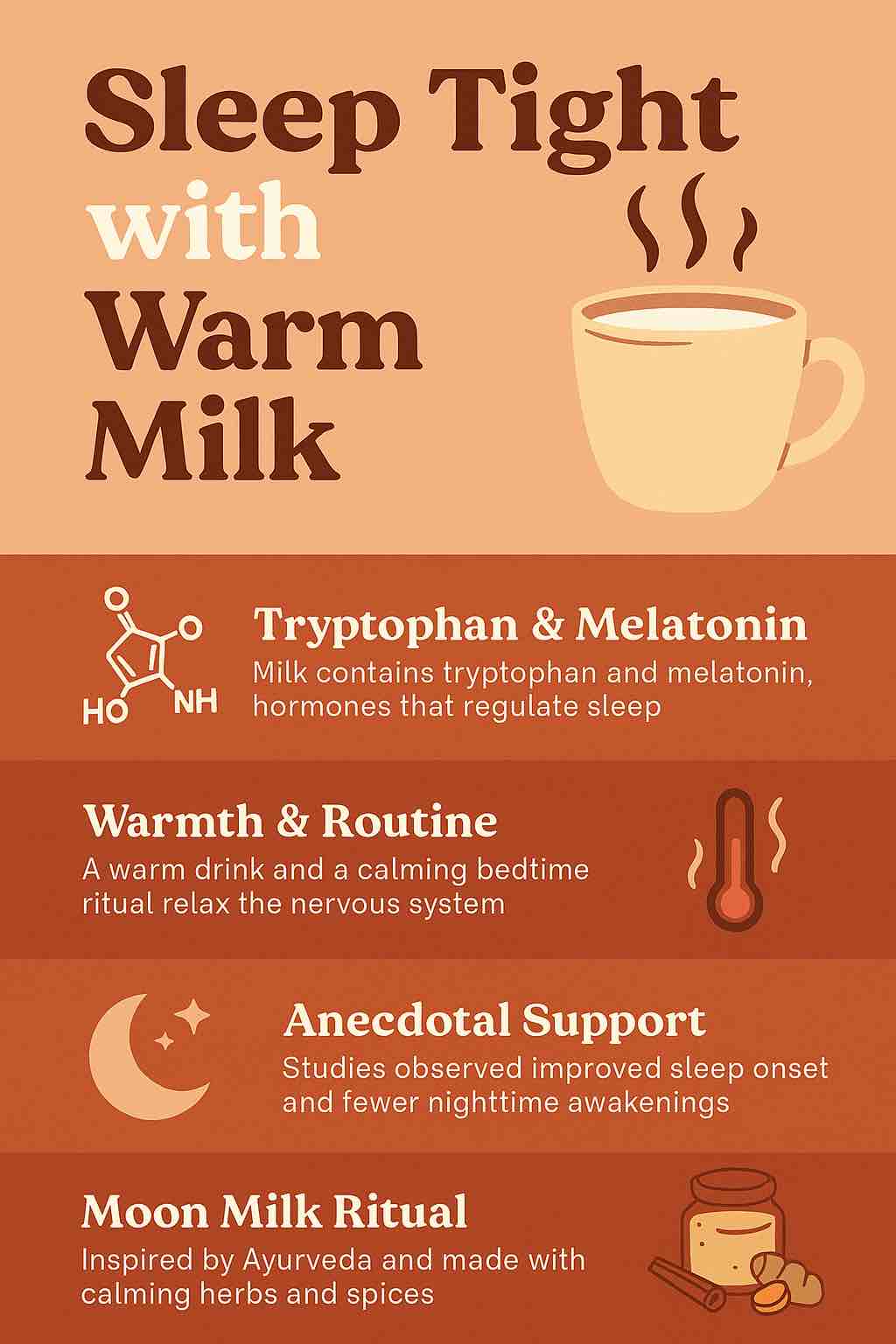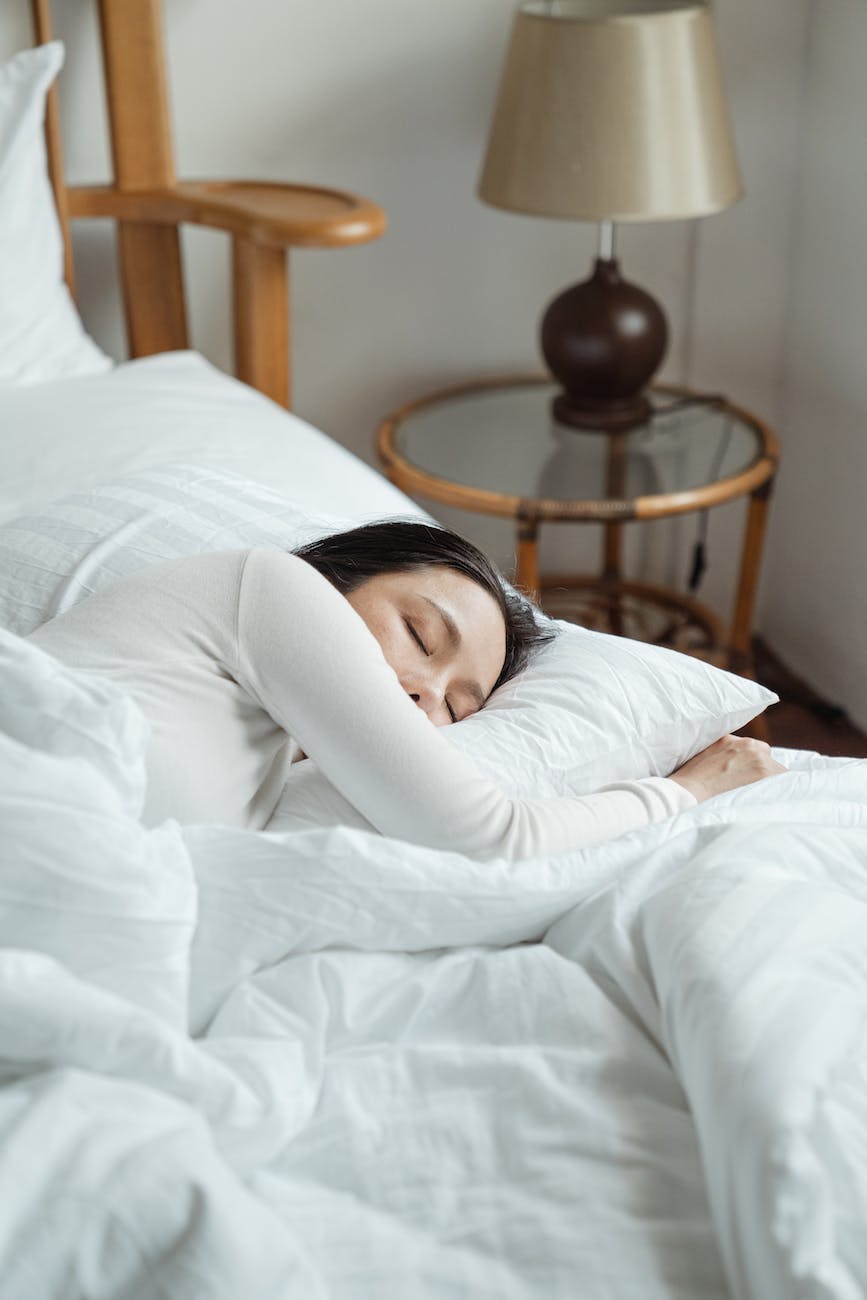
In our increasingly busy lives, quality sleep often feels elusive. For centuries, people have turned to a simple, comforting solution: a warm cup of milk before bed. But is there real science behind this practice? In this comprehensive guide, we explore the benefits of warm milk for sleep, uncover research-backed insights, and share practical, delicious recipes to help you unwind and fall asleep more peacefully.
Why Warm Milk Before Bed Works
1. Tryptophan and Melatonin: The Natural Sleep Duo
Milk is rich in tryptophan, an essential amino acid that serves as a precursor to both serotonin and melatonin. These neurotransmitters are crucial in regulating the sleep-wake cycle. Studies have shown that consuming tryptophan-rich foods can lead to improved sleep latency and duration, especially when consumed alongside carbohydrates which help facilitate its uptake into the brain.
Moreover, milk—especially milk collected at night—contains melatonin. Although the levels vary, even standard milk offers a gentle dose of this sleep-promoting hormone.
2. GABA and Fermented Dairy
Fermented dairy products like yogurt and kefir can provide gamma-aminobutyric acid (GABA), a neurotransmitter that reduces neuronal excitability, promoting relaxation. Clinical studies have demonstrated GABA’s calming effects, including reduced anxiety and better sleep quality.
3. Psychological and Ritualistic Effects
There is also a comforting, almost meditative effect to sipping a warm drink before bed. The act itself becomes a calming ritual that signals the brain it’s time to wind down. The warmth soothes the nervous system and can be especially effective when combined with cozy elements like soft lighting, a warm blanket, or soothing music.
Functional Enhancements: Taking Milk to the Next Level
To make warm milk even more effective, many turn to functional ingredients. These additions are rooted in both modern science and traditional medicine, especially Ayurveda.
Ashwagandha
An adaptogen known to reduce cortisol levels and support sleep, ashwagandha is often added to “moon milk” blends. Research indicates that daily supplementation can improve sleep quality and stress resilience.
Turmeric (Golden Milk)
Turmeric, with its active compound curcumin, provides anti-inflammatory benefits. When paired with a pinch of black pepper (to boost bioavailability), it becomes a powerful nighttime tonic.
Cinnamon, Nutmeg, and Cardamom
These spices add flavor and bring their own set of calming, digestive, and circulatory benefits. Nutmeg, in particular, has mild sedative properties when used in small amounts.
Practical and Delicious Sleep Milk Recipes
1. Classic Warm Milk
- 1 cup whole milk
- 1 tsp honey
- A few drops of vanilla extract
- A pinch of nutmeg
Gently heat milk until warm but not boiling. Stir in honey, vanilla, and nutmeg. Sip slowly before bed.
2. Golden Moon Milk
- 1 cup milk (dairy or plant-based)
- 1/2 tsp turmeric
- A pinch of black pepper
- 1/4 tsp cinnamon
- 1/4 tsp ashwagandha powder (optional)
- 1 tsp honey or maple syrup
Simmer all ingredients on low heat for 5–7 minutes. Strain if needed. Enjoy warm.
3. Cinnamon Almond Milk Latte (Dairy-Free)
- 1 cup unsweetened almond milk
- 1/2 tsp cinnamon
- 1 tsp almond butter (optional)
- 1 tsp maple syrup
Blend ingredients and gently warm. This recipe offers healthy fats and a satisfying taste.
Tips for Making It Work
- Make it a routine: Try to drink your sleep milk 30–45 minutes before bed.
- Be consistent: Like all sleep habits, consistency is key. Make it part of your nightly ritual.
- Watch the temperature: Warm is best—too hot may cause discomfort or affect your throat.
- Tailor it to your needs: Lactose intolerant? Use lactose-free or plant-based milk fortified with melatonin (some almond milks offer this).
- Avoid large meals: Don’t pair it with a heavy meal. Keep it light to avoid reflux.
Final Thoughts: Embrace the Ritual
While the scientific community continues to explore the nuances of nutrition and sleep, the warm milk ritual is a time-tested remedy supported by emerging evidence. It’s simple, safe, and soothing. Whether you opt for classic warm milk, golden turmeric blends, or adaptogen-enhanced moon milk, this nightly practice can become a powerful tool in your sleep hygiene arsenal.
So tonight, why not trade your scrolling screen for a warm mug of sleep milk and a moment of calm?
Sleep tight.
🔍 FAQs
1. Does warm milk really help you sleep, or is it just a myth?
Warm milk contains tryptophan and melatonin, both of which are linked to better sleep. Combined with the calming ritual of drinking something warm, it offers both biological and psychological benefits—so it’s more than just an old wives’ tale.
2. What kind of milk works best—dairy or plant-based?
Whole dairy milk naturally contains tryptophan and melatonin, making it most effective. However, some plant-based milks (like almond milk) are fortified with melatonin and can be good alternatives, especially when paired with sleep-promoting spices.
3. When is the best time to drink sleep milk?
Drink it about 30–45 minutes before bed. This allows enough time for digestion and for the tryptophan to start influencing your brain chemistry.
4. Can I drink warm milk every night?
Yes, it’s safe for most people to drink nightly—just be mindful of sugar content and any dietary restrictions like lactose intolerance. Consistency improves results.
5. Are there any side effects or things to avoid?
Avoid drinking it too hot or in large quantities right before lying down, as it could cause reflux. Also, don’t overdo spices like nutmeg or ashwagandha—stick to recommended culinary doses.
6. What is the difference between moon milk and golden milk?
Golden milk focuses on turmeric and its anti-inflammatory benefits. Moon milk is more comprehensive, often including adaptogens like ashwagandha, along with calming spices for stress and sleep.
7. Can kids have warm milk for sleep?
Yes—plain warm milk or mild golden milk (without strong spices or adaptogens) can be a safe and comforting bedtime drink for children. Always check for allergies.
8. Does warm milk still help if it’s sweetened?
Yes, a small amount of natural sweetener (like honey or maple syrup) may even enhance tryptophan absorption. Just avoid high sugar content, which can disrupt sleep.
9. Is there any scientific proof that this works?
Several small-scale studies suggest benefits from tryptophan, melatonin-rich milk, fermented dairy (for GABA), and adaptogenic herbs. While more research is needed, results are promising and low-risk.
10. What can I add to warm milk to make it more effective?
You can add turmeric, cinnamon, nutmeg, vanilla, ashwagandha, or honey—each brings unique calming, anti-inflammatory, or adaptogenic effects to enhance your sleep routine.












